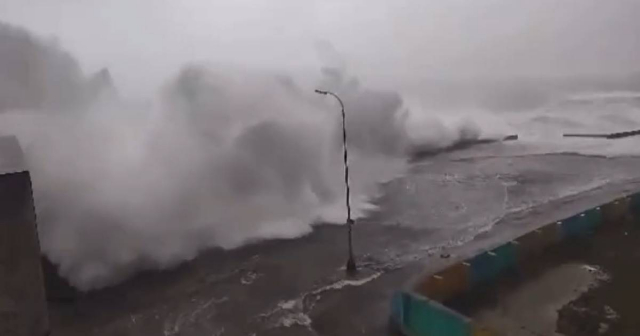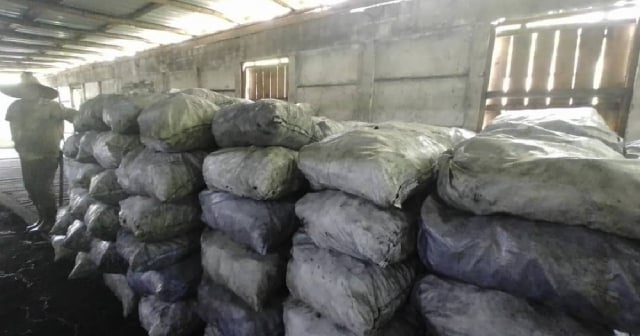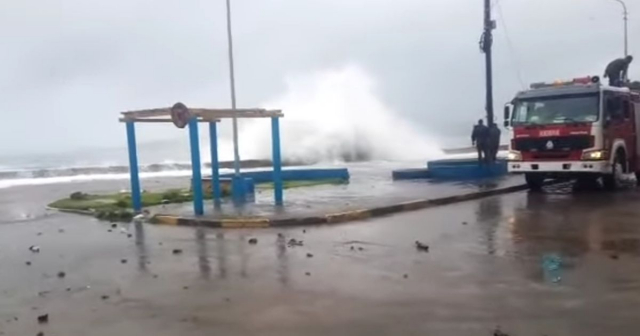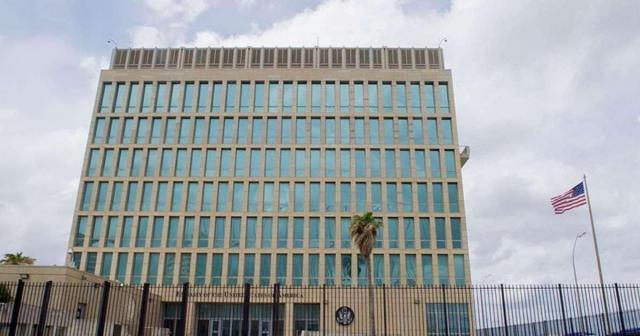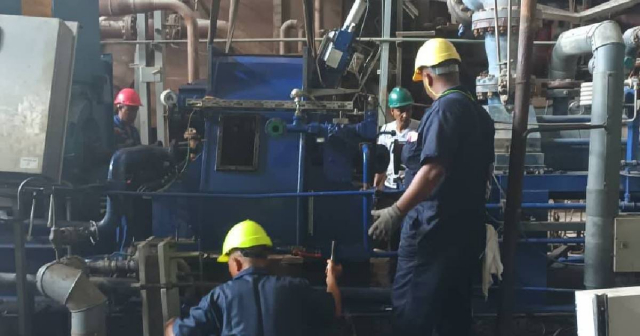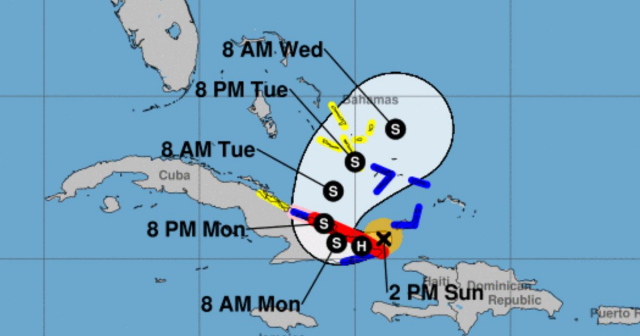Hurricane Oscar made landfall at 5:50 PM this Sunday near Baracoa, in the province of Guantánamo, with winds of approximately 130 km/h, reported the National Hurricane Center (NHC) of the U.S.
According to satellite images and radar data monitored by the NHC, Oscar made landfall on the northern coast of eastern Cuba, near the city of Baracoa, with maximum sustained winds of about 130 km/h (80 mph).
Preliminary observations made during reconnaissance flights by the Air Force estimated the minimum central pressure of the cyclone at 986 mb (29.12 inches), the NHC noted in the update of its advisory number 7 on the category 1 hurricane on the Saffir-Simpson scale.
At 5:50 PM, Oscar's center was estimated at 20.3 degrees North latitude and 74.4 degrees West longitude, coordinates that placed it about 10 kilometers (5 miles) east-southeast of Baracoa and about 80 km (50 miles) east of Guantánamo.
The Forecast Center of the Institute of Meteorology (INSMET) of Cuba confirmed in its tropical cyclone notice No. 7, issued at 6:00 p.m., that Oscar had made landfall near Baracoa.

"During the last hours, Hurricane Oscar has continued moving slowly to the west-southwest at a translation speed of 11 kilometers per hour," specified the report from INSMET. The maximum sustained winds remain at 130 kilometers per hour, with higher gusts, "therefore it continues to be a category one hurricane on the Saffir-Simpson scale and its minimum pressure is 986 hectopascals."
Rain and thunderstorms have been reported in the eastern provinces. The most significant precipitation value was recorded at the Punta de Maisí station: 123.5 millimeters, between eight in the morning and four in the afternoon on this Sunday, it was reported.
Cuban meteorologists announced that in the coming hours, rain, showers, and thunderstorms associated with Hurricane Oscar will continue, which will become strong and intense in some areas and in the mountainous regions.
The accumulated precipitation can reach values between 100 and 200 millimeters in the provinces of the eastern region, the report stated.
The weather conditions continue to deteriorate, and in recent hours, wind gusts exceeding 100 kilometers per hour have been reported at the Punta de Maisí weather station. The most significant was 130 km/h at six in the afternoon, with sustained maximum winds of around 85 km/h.
Previously, the Guantanamera station had recorded sustained winds of 80 km/h and a gust of 116 km/h around 5:25 p.m., clear signs of Oscar's imminent arrival in the eastern region of Cuba. Just an hour earlier, at 4:30, gusts of 103 km/h were reported.
According to INSMET, in the eastern provinces of Cuba, the strength of the winds will gradually increase, which could reach speeds between 85 and 100 km/h this Sunday night, with higher gusts. In the provinces of Guantánamo and Holguín, the winds may reach hurricane force and speeds of up to 120 km/h in areas near the eye of the cyclone.
Strong swells are also expected to continue along the northeastern coast, mainly in Guantánamo and Holguín, and during the night they will extend to the northern coastline of Las Tunas. Additionally, coastal flooding will range from moderate to strong in low-lying coastal areas, including the seawall of Baracoa.
The provinces of Guantánamo, Santiago de Cuba, Holguín, Granma, and Las Tunas are in the Cyclonic Alarm Phase, while Camagüey remains in the Alert Phase and Ciego de Ávila continues in the informative phase.
Cuban authorities have urged the population to stay informed through the media and to strictly follow the guidelines from local officials and Civil Defense. However, the weather phenomenon caught many people in the eastern part of the country off guard, as they have been without electricity for days and have not been aware of the warnings and weather forecasts regarding the hurricane.
Oscar's arrival in Cuba further worsens the already critical situation in the eastern region, caused by the general blackout that has plunged the entire country since the morning of Friday, when the National Electric System (SEN) completely collapsed.
More than 48 hours later, the authorities, executives from the Electric Union, and technicians from the thermoelectric plants have not resolved the widespread blackout, the overwhelming consequences of which are being suffered by millions of Cubans.
Since Friday, the recovery efforts of the SEN have been marked by several total and partial disconnections. On Saturday morning, while trying to rehabilitate the system, it collapsed again. In the evening, the government announced the restoration of electricity in only 11% of the country, but something failed again during the restart and the SEN stopped functioning once more.
On the afternoon of this Sunday, another total outage occurred - the fourth since Friday - after a "shot" happened at the 10 de Octubre Thermal Power Plant (CTE) in Nuevitas, Camagüey.
What do you think?
COMMENTFiled under:

